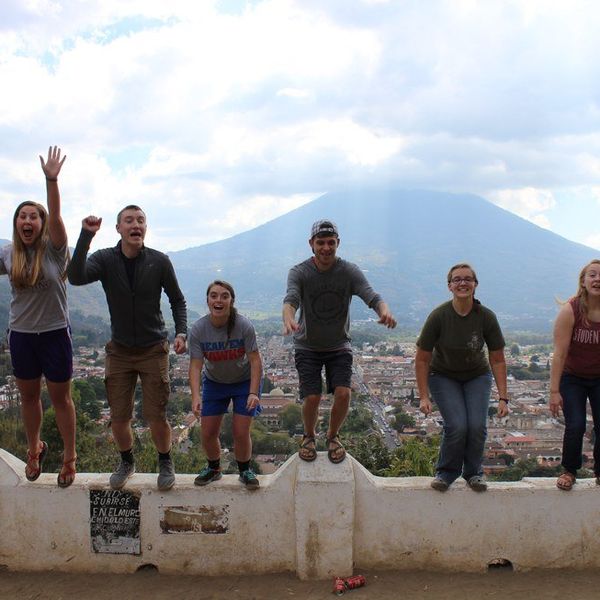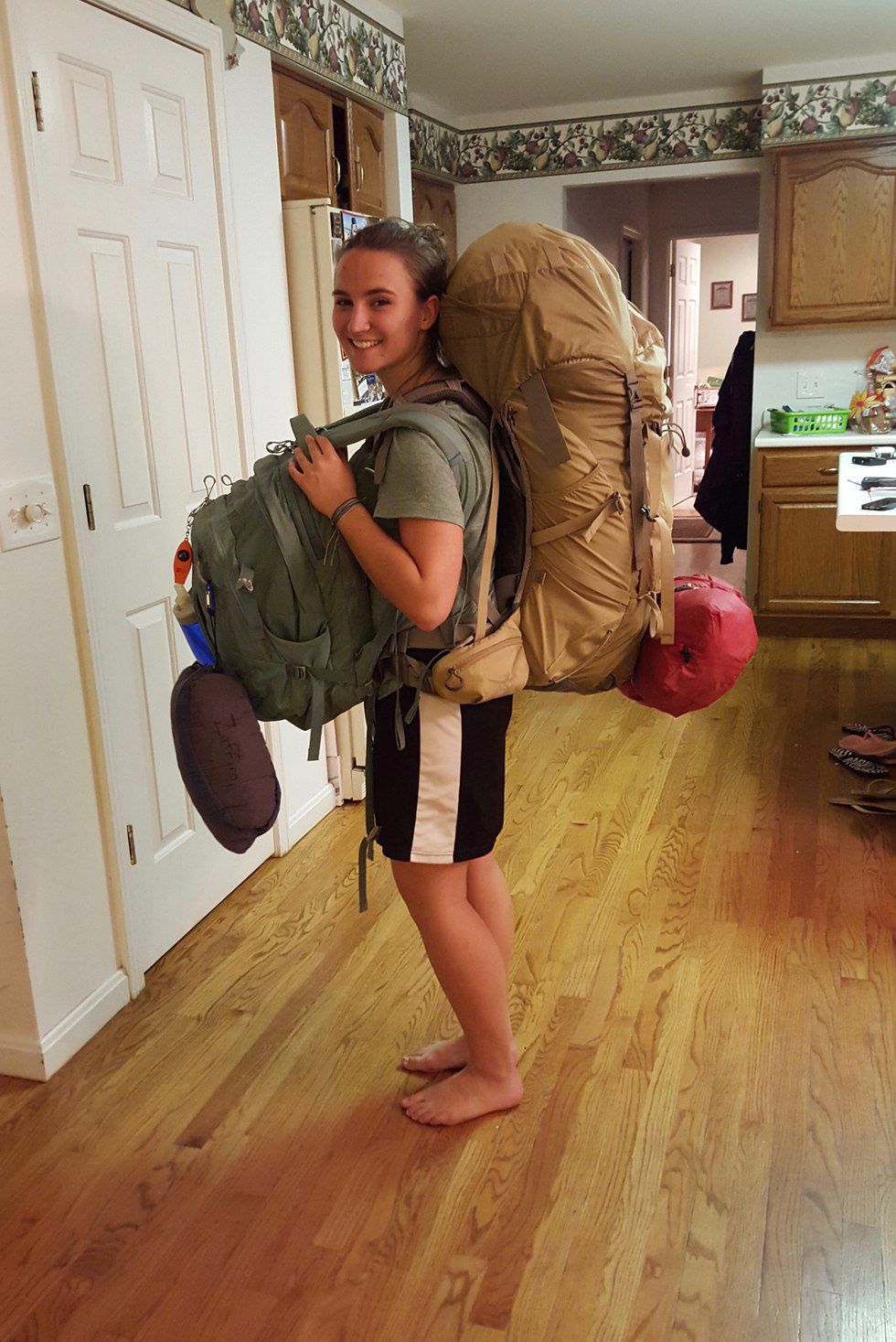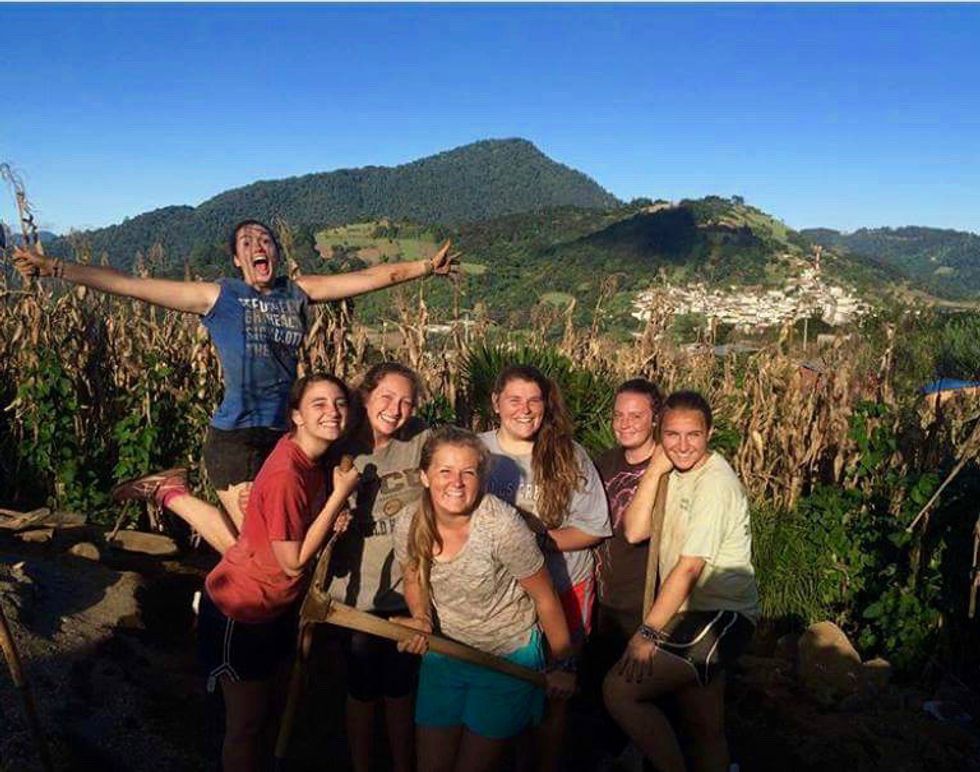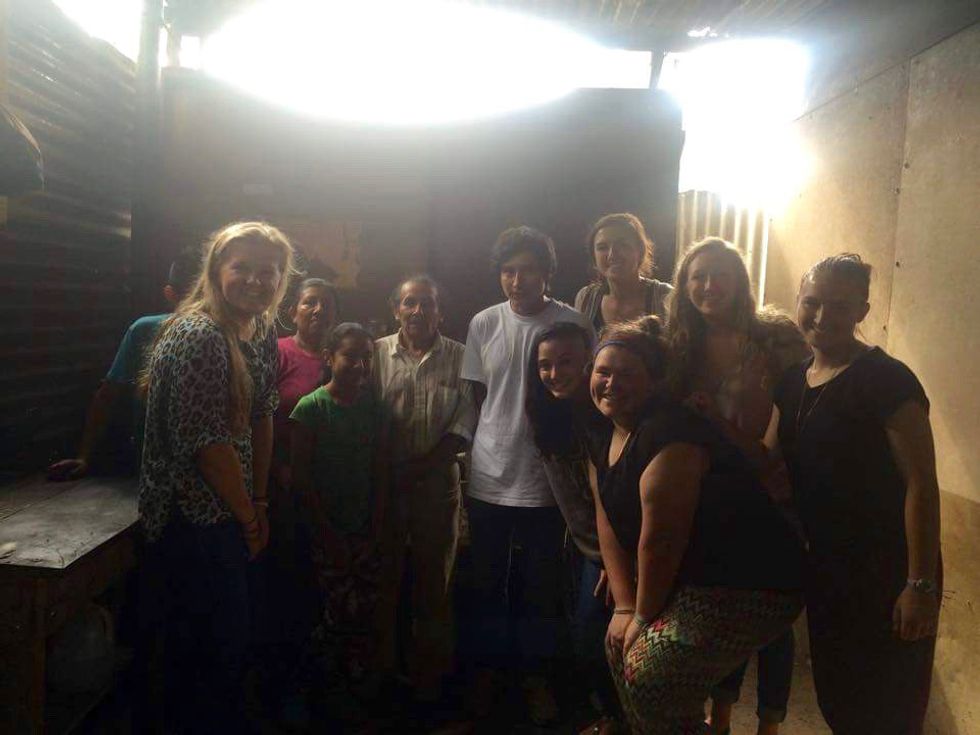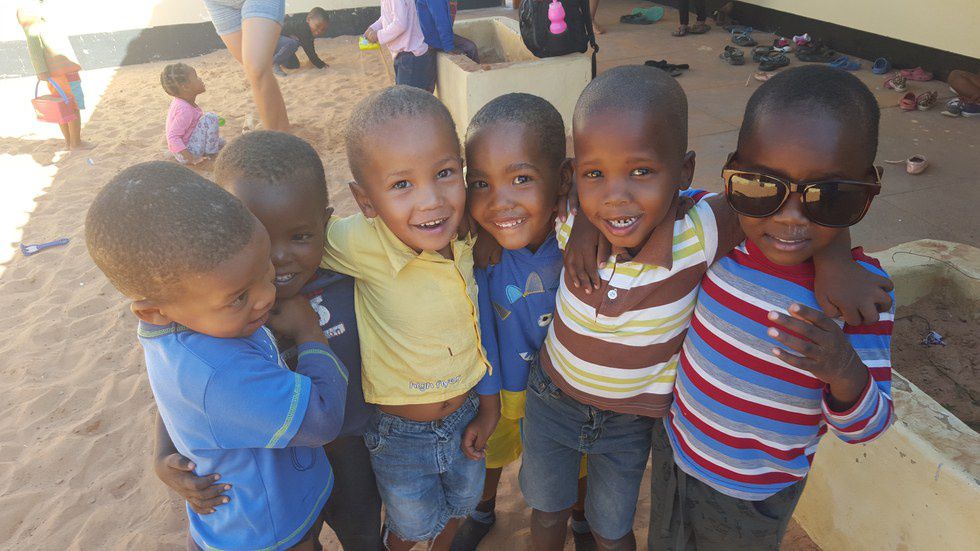As a child, one of the greatest gifts I would receive every year was a missionary prayer calendar given out by my denomination. Each edition would receive a honored place on my nightstand and would be well worn by time the year was up. My mother says I wouldn’t let anyone go to sleep until that day's missionaries were prayed for, and I distinctly remember curling up in a corner during play time, cracking open the calendar, as if something sacred lay in wait to be discovered. I would pour over the pages, dreaming of the distant places, the work that was being done there, the other children I could play with, and the adventures being had.
It was no surprise then, when I announced to my parents that, after high school, I was leaving for the mission field. After the initial shock and futile attempts at dissuasion, my house was soon in a frenzy, acquiring everything I needed for the next year of my life.
I was embarking of the trip of a lifetime. Three countries in nine months. After years of being squashed by writing papers and taking tests, I could feel my inner adventurer leap back up inside me. I imagined my five-year-old self, fist in the air and running full speed ahead, as I packed the last necessities and headed for the airport.
But what I found when I got there wasn’t the people and adventures of an untouched land. Each country seemed to me spiritually ravaged and worn. I saw the after-effects of missionaries coming in for five to ten days at a time, demanding reformation, building houses that would fall, and taking pictures with children who were becoming hardened to people walking in and out of their lives.
The Wall That Fell
In Guatemala, I lived in a house with 20 other guys and girls my age. (Could we really be called men and women at this point?) In the course of our three-month stay, we had several opportunities for ministry. One group of girls was assigned to teach English, the boys' team was placed teaching health classes in schools, and through a series of unfortunate events, my all-girls team was placed on a construction site. Just the place for eighteen and 19-year-old girls, right?
After a short tutorial that was entirely spoken in Spanish and only understood through hand motions, we were set to the task of building one of the rooms in the new upper level of a house. Despite the odds, my team of seemingly perpetually cheerful girls made the most of our rigorous new lifestyle of waking up at six, mixing concrete, laying bricks, fighting heat exhaustion, and coming home at five. We sang as each brick was laid, celebrated when a row was finished, and reveled in the blinding contrast of our Chaco tans.
Finally, the wall was finished. Shortly after, the wall fell. Although generally mortified and annoyed, I’m forever thankful I was able to see that wall fall. If this had been a short-term mission trip, I would have come away from that experience as so many do, saying “I built a house in Guatemala for this poor woman!” I would have been on a spiritual high for weeks, showing everyone back home pictures and sharing memories. As it was, I was able to see that my labors on this particular project were anything but helpful. They were in this case and countless others, detrimental.
Our stint in construction wasn’t entirely wasted, however. Through muddled Spanish and grandiose games of charades, we were able to acquire the friendship of a Guatemalan boy our own age named Francis. Unlike us, Francis new every trick in the construction book. Because his parents were sick and unable to work, Francis put his dreams of an education aside and worked countless hours a week doing manual labor at numerous different jobs. My team was able to visit Francis’s family several times in our stay, and I wished more than anything I could have sent money in my place so that more people like Francis would have been able to build that house instead.
When it comes to the construction business, you have to know that more often than not, you are not really helpful to any of the process. If your church or school is funding the building of a school -- FANTASTIC! But when it comes down to the actual building, sacrifice your own desires and create local jobs for those who really need it. Always, always, always try to improve and sustain economy around you.
The Children That Followed
Africa is the pinnacle of skirt-wearing, child-loving, Christian white girls’ lives. Going into the Kalahari Desert of Botswana, I could hardly wait to make my profile picture that shot of me surrounded by precious African children with toothy grins and sweet faces. Alas, South Africa got there first.
If you know anything of South African history, you’ll know that the country was taken over by European powers. After ruling over the Africans for many years (black South Africans finally got the vote in 1994), the power began to even out, Africans regained freedom, and many Whites left the country. Many stayed, however, and are involved in a fair amount of mission work in villages and town in both South Africa and its neighboring countries.
The humble village of Bokspits, Botswana with a population of 400, one paved road, and the ever fluffy sand that has made me forever hate the beach but love my newfound calf muscles, sat right on the border of South Africa. Because of its proximity, white South Africans would come up one or twice a year bringing toys, building houses, and giving all their extra currency to the mob of children before they crossed back over the border. I’m sure they went back to their churches and showed pictures on the big screen of the dark, laughing faces and the progress that was made in the lowly village of Bokspits. What they never talked about and may never know about is the incredible damage they left behind.
I could have taken that picture of me surrounded by African children many, many times. The only difference is I certainly would not have been smiling in it. There was a mob of children that followed us everywhere to be sure, but it wasn’t all sunshine and giggles. From the second we were spotted all we heard was, “Hey, give me food.” “I am hungry.” “Give money.” “Give me water.” “I am thirsty.” “Give me pula.” (Pula being the currency there.)
It was horrible. I walked the line between anger and sadness on the daily, reassuring myself that it wasn’t the children’s fault, that they had been trained to expect this because of other white people. Because of our unique ability to stay in this village for almost three months, we were also able to get to know the families of the children who plagued us every time we stepped out the door. For the most part I knew for a fact that these children were being fed and taken care of. Even in church, we were passed the offering plate as if we were to drop in a sum of money that would take care of the church’s every need. It. Was. Exhausting.
The passage in Acts 3 where Peter heals the crippled beggar became my team’s mantra: “Silver and gold I do not have, but what I have I give you.” (Vs. 6) The only free handout my team ever gave was tea and coffee for a Mother's Day event and our leftover soup and porridge packets to the school when we left. I pray that my team’s insistence has remedied some of the damage in Bokspits, but I know the psychological damage is irreversible.
The Man That Died
Jesus told us after he rose again to go into all nations, preaching the Good News and baptizing people in the name of the Father, Son, and Holy Spirit. Where in history was the Great Commission distorted into go into all the nations, fixing their poverty, building their houses, and leaving when your own pride is filled? Jesus was a man who walked alongside people in their hurt and healed their emotional and physical wounds. He didn’t attempt to change their circumstances, and he certainly didn’t enable them. Jesus empowered and spiritually equipped. As the church, we have to come back to the origin of mission work. Like everything in life, when we start to deviate from His example, only poor and self-serving fruit can be produced.
I can’t fix the mistakes I’ve made on the mission field, and I certainly can’t change the mistakes of others, but what I can do is use my experiences to equip a new generation of people who are going out in Jesus’ name.
So please, learn from and share these stories. I am just one girl with one experience. I would love to hear yours as well! Short term missions can be an incredible and life-changing experience, but only if it done the right way.
P.S. The incredible cover photo of this article was taken by my friend Gaby Scheer. You can see more of her work on her Instagram @totheshore. She never ceases to amaze me.
God Bless,
Carissa Zaffiro


